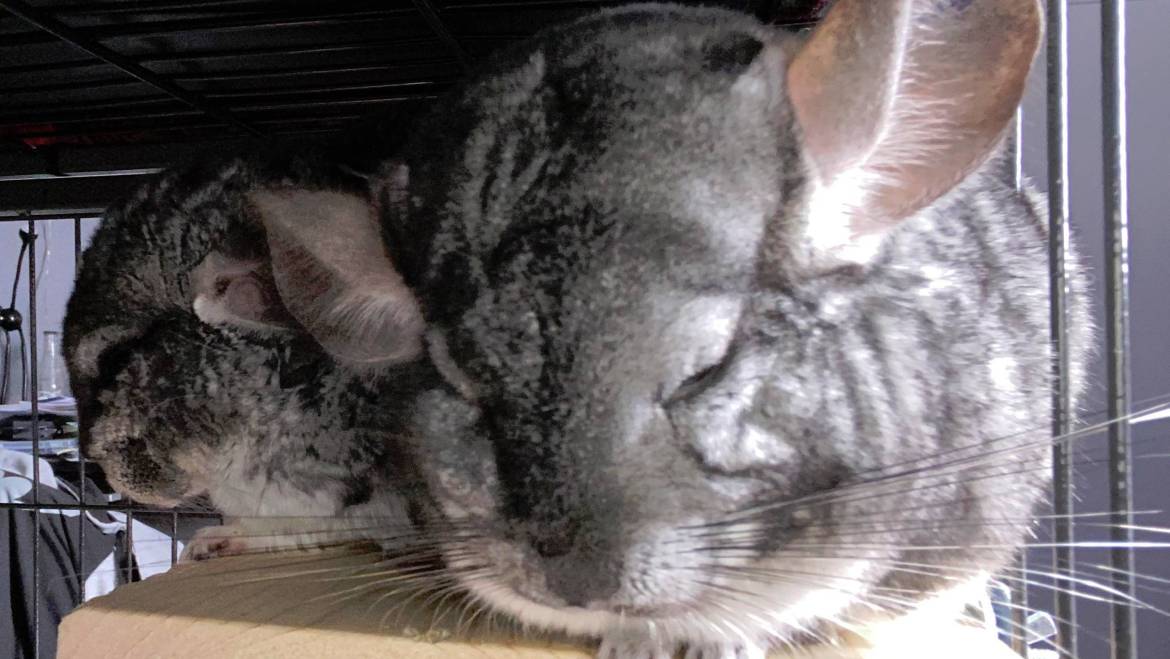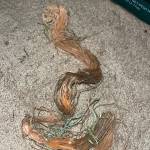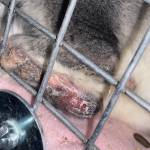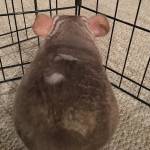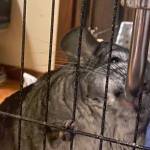Chinchillas are adorable and cuddly pets that bring joy and happiness to their owners. They are intelligent, active, and playful animals that require a lot of attention and care. However, like all living creatures, chinchillas are susceptible to certain health issues. One such problem that can affect chinchillas is choking. Choking is a serious condition that can be life-threatening if left untreated. In this article, we will explore the causes, symptoms, and treatment options for chinchilla choking.
What Causes Chinchillas to Choke?
Choking can occur in chinchillas for a variety of reasons. One of the most common causes of choking in chinchillas is eating food that is too large or too hard. Chinchillas have small throats and digestive systems, and they are not designed to handle large or hard food items. If a chinchilla eats something that is too big or too hard, it can get stuck in its throat or digestive tract, leading to choking.
Another common cause of choking in chinchillas is foreign objects. Chinchillas are curious animals, and they like to explore their surroundings. They may accidentally swallow small objects such as toy parts, bedding, or even small rocks, which can get stuck in their throats or digestive tract.
Symptoms of a Choking Chinchilla
The symptoms of choking in chinchillas can vary depending on the severity of the condition. Some common symptoms of choking in chinchillas include:
- Difficulty breathing
- Wheezing or coughing
- Drooling or excessive salivation
- Refusal to eat or drink
- Inability to swallow
- Restlessness or agitation
- Swelling or inflammation in the throat area
- Blue or purple discoloration of the skin or mucous membranes
If your chinchilla displays any of these symptoms, it is important to seek veterinary care immediately. Choking is a serious condition that can quickly become life-threatening if left untreated.
Treatment Options for Choking Chinchillas
If you suspect that your chinchilla is choking, it is important to seek veterinary care immediately. Choking can quickly lead to respiratory distress and death if left untreated. Your veterinarian will perform a physical exam and may recommend diagnostic tests such as x-rays or an endoscopy to determine the cause and severity of the choking.
In some cases, your veterinarian may be able to remove the obstruction manually. This is typically done under sedation or anesthesia to minimize discomfort and reduce the risk of injury to the chinchilla. If the obstruction cannot be removed manually, surgery may be required to remove the object or repair any damage to the throat or digestive tract.
Preventing Choking in Chinchillas
Prevention is always the best approach when it comes to health issues in pets. There are several steps you can take to reduce the risk of choking in your chinchilla, including:
- Providing Appropriate Food: Make sure to provide your chinchilla with food that is appropriate for their size and digestive system. Avoid feeding them food that is too hard or too large, as this can increase the risk of choking.
- Monitoring Your Chinchilla: Keep a close eye on your chinchilla when they are eating or playing. Make sure they do not have access to small objects that they could accidentally swallow.
- Regular Cleaning: Regularly clean your chinchilla’s cage and remove any small objects that may have fallen in. Make sure to provide fresh bedding and toys that are appropriate for their size and cannot be easily chewed or swallowed.
- Supervision During Playtime: Supervise your chinchilla during playtime and make sure they do not have access to small objects that they could swallow. Provide them with safe and appropriate toys to play with, and avoid toys that are small enough to be swallowed.
- Hydration: Make sure your chinchilla has access to clean, fresh water at all times. Dehydration can increase the risk of choking by making it more difficult for your chinchilla to swallow.
In conclusion, choking is a serious condition that can affect chinchillas. It is important to be aware of the causes, symptoms, and treatment options for choking in chinchillas. Prevention is always the best approach, so make sure to provide your chinchilla with appropriate food, monitor their eating and play habits, and supervise them during playtime. If you suspect your chinchilla is choking, seek veterinary care immediately to prevent further complications or even death.

